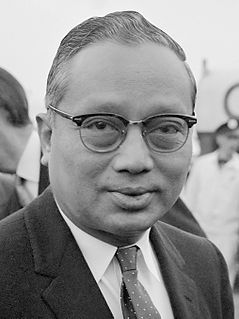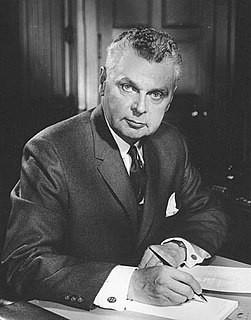A Quote by U Thant
The Universal Declaration of Human Rights - This great and inspiring instrument was born of an increased sense of responsibility by the international community for the promotion and protection of man's basic rights and freedoms. The world has come to a clear realization of the fact that freedom, justice and world peace can only be assured through the international promotion and protection of these rights and freedoms.
Quote Topics
Assured
Basic
Basic Rights
Born
Clear
Come
Community
Declaration
Declaration Of Human Rights
Fact
Freedom
Freedoms
Great
Human
Human Rights
Increased
Inspiring
Instrument
International
International Community
Justice
Man
National Community
Only
Peace
Promotion
Protection
Realization
Responsibility
Rights
Rights And Freedoms
Sense
Sense Of Responsibility
Through
Universal
World
World Peace
Related Quotes
Human rights and international criminal law both illustrate the contradictory potential of international law. On one level, the imposition of human rights norms is a restraint on interventionary diplomacy, especially if coupled with respect for the legal norm of self-determination. But on another level, the protection of human rights creates a pretext for intervention as given approval by the UN Security Council in the form of the R2P (responsibility to protect) norm, as used in the 2011 Libyan intervention. The same applies with international criminal accountability.
Slavery was, in a very real sense, the first
international human rights issue to come to the fore. It led to the
adoption of the first human rights laws and to the creation of the
first human rights non-governmenta l organization. And yet despite
the efforts of the international community to combat this abhorrent
practice, it is still widely prevalent in all
its insidious forms, old and new.
Freedom is a timeless value. The United Nations Charter calls for encouraging respect for fundamental freedoms. The Universal Declaration of Human Rights mentions freedom more than twenty times. All countries have committed to protecting individual freedoms on paper - but in practice, too many break their pledge.
The preservation of peace and the guaranteeing of man's basic freedoms and rights require courage and eternal vigilance: courage to speak and act - and if necessary, to suffer and die - for truth and justice; eternal vigilance, that the least transgression of international morality shall not go undetected and unremedied.
The Universal Declaration of Human Rights recognizes that 'if man is not to be compelled to have recourse, as a last resort, to rebellion against tyranny and oppression', human rights should be protected by the rule of law. That just laws which uphold human rights are the necessary foundation of peace and security would be denied only by closed minds which interpret peace as the silence of all opposition and security as the assurance of their own power.
One thing is to have the protection of human rights for homosexuals and quite something else is this promotion of indecency. It would be immoral and unethical to deny the homosexuals their human rights. But it is also immoral to consider disorders as normal. None of these deviances are biological. They are acquired by fantasizing about them.
Ajamu Baraka is a human rights advocate and an international human rights advocate, who's been defending racial justice, economic justice, worker justice, indigenous justice, and justice for black and brown people all over the world, and in the United States has been helping to lead the charge against the death penalty here, and is an extremely eloquent and empowering person. And one of the great things about running with him is that we speak to all of America.
Since the narrower or wider community of the peoples of the earth has developed so far that a violation of rights in one place is felt throughout the world, the idea of a cosmopolitan right is not fantastical, high-flown or exaggerated notion. It is a complement to the unwritten code of the civil and international law, necessary for the public rights of mankind in general and thus for the realization of perpetual peace.
It is a great problem for the true international agenda of human rights that the United States, uniquely among industrialised countries, has not ratified three main instruments, has not ratified the Covenant on Economic, Social and Cultural Rights, or the Convention on the Rights of the Child, or the Convention for the Elimination of Discrimination Against Women, and we could have so much richer a debate and dialogue on international human rights standards if the superpower would sign up to the agenda.
World peace is threatened not only by weapons of mass destruction but also by conventional weapons which have led to countless violations of human rights, including the rights to life and to physical integrity. A strong treaty can contribute greatly to international and regional peace, security and stability.
The Charter of the United Nations expresses the noblest aspirations of man: abjuration of force in the settlement of disputes between states; the assurance of human rights and fundamental freedoms for all without distinction as to race, sex, language or religion; the safeguarding of international peace and security.










































